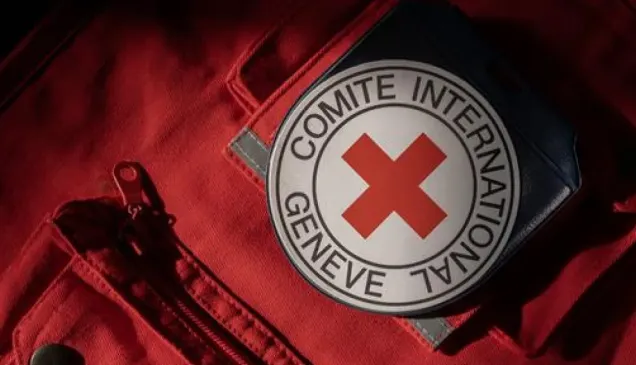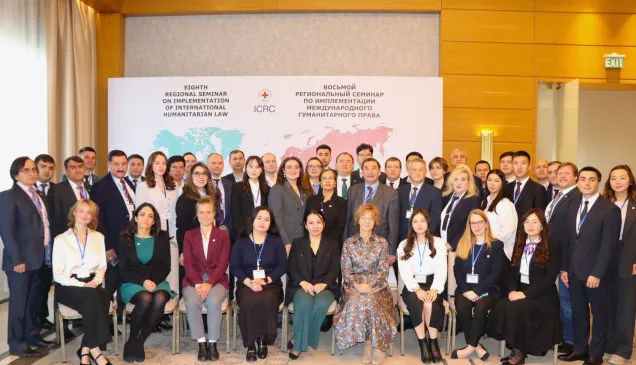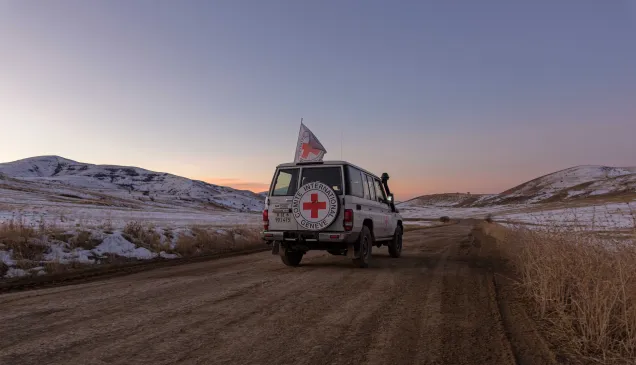Azerbaijan: Silk, honey and saffron soothe sting of life in times of COVID-19
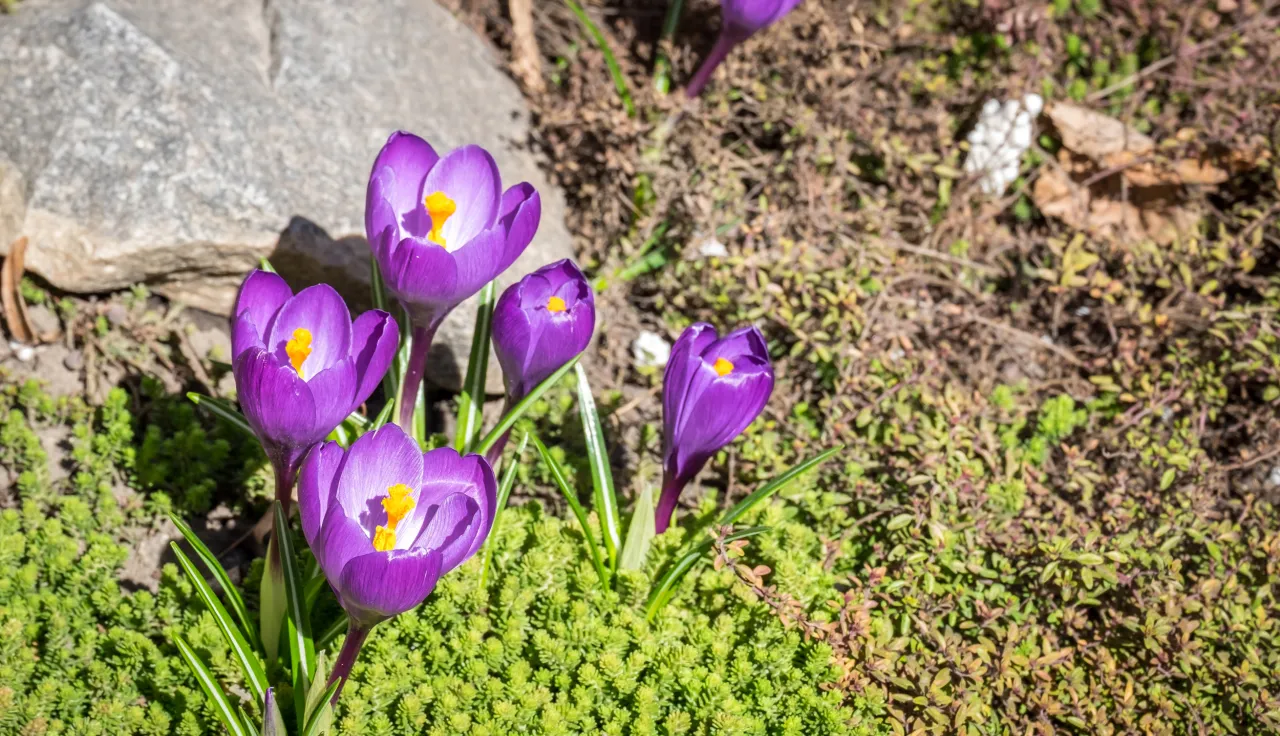
Silk cocoons, honey, saffron, mulberry leaves and home-made cheese – sounds like a list of treasures from an exotic land? They are what have been keeping farmers in Azerbaijan occupied and financially afloat while the COVID-19 pandemic alters everything that was once considered ‘normal’.
Even regular life can be a struggle for survival in the remote parts of Azerbaijan that are affected by conflict. Because of low precipitation and water shortage, families struggle to manage basic household chores. Due to the scarcity, proper irrigation of garden plants or fields can feel like a luxury. If that wasn't enough, herding animals is perilous because of landmines in the area. Since the outbreak of COVID-19, movement restrictions imposed by the authorities have added another layer of difficulty for those living in Fuzuli, Terter, Goranboy and Gazakh districts. In such a context, the International Committee of the Red Cross (ICRC) has been helping to bridge gaps so that families can continue earning a livelihood while also following necessary social distancing norms.
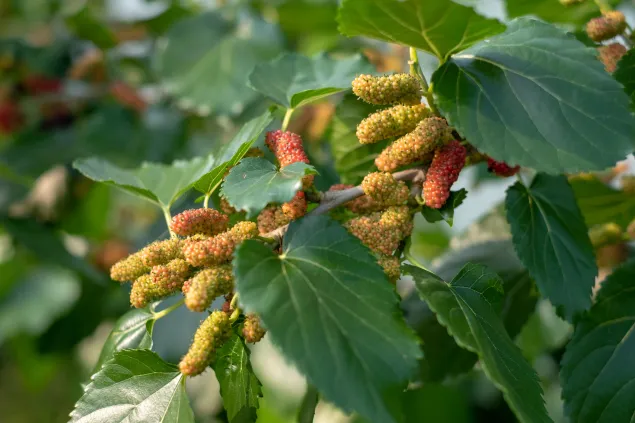
Growing mulberry trees.
In Fuzuli district, the ICRC distributed 4,000 kg mulberry leaves among ten households of the Alkhanli community that produce silkworm cocoons. "In 2017, the ICRC had helped plant a communal field of mulberry trees, which is available for any silkworm producer in the village. Farmers can collect the mulberry leaves to breed and rear silkworms. The cocoons are then purchased by the state through their collection centres and taken to a silk factory in Sheki. One cocoon yields about 300 to 900 metre raw silk fibre," says Jihad Nabhan, who oversees the ICRC economic security projects in Azerbaijan.
One cocoon yields about 300 to 900 metre raw silk fibre.
Aliyev Seymur, one of the Alkhanli farmers, had received one box of silkworms last year and was able to produce 50 kg cocoon that fetched 500 Azerbaijani manat (AZN). "Since there are enough leaves to feed the silkworms, this year I took 1.5 boxes and produced 80 kg cocoon. I hope to receive 800 AZN," he says.
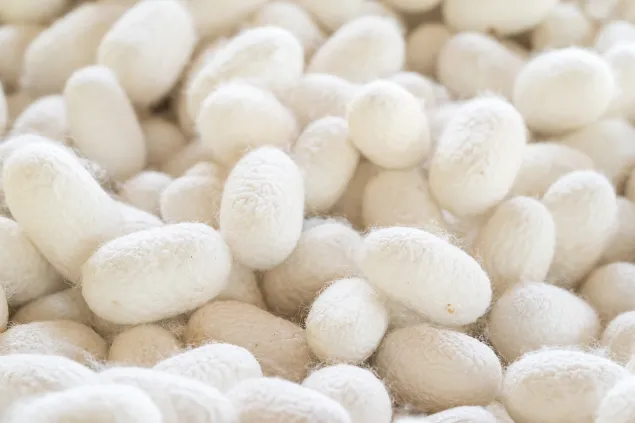
Silk cocoons that are processed to yield silk fiber.
Guliyeva Nasiyyat, who also lives in the area, shares that the mulberry plantation in the village encouraged her to consider cocoon production. "Last year, I had produced 40 kg cocoon and this year I handed over 63 kg. That will increase my income by 230 AZN over what I earned last year. The ICRC's mulberry field has been such a big help. I harvested 400 kg leaves during peak season and plan to increase production every year," she says.
...using trays not only reduces the consumption of water but also reduces the effort required in weeding.
The ICRC recently arranged weeding of a field of 6,000 mulberry trees and irrigated it through drip irrigation system to ensure minimum wastage of water. "As a pilot project, we also purchased 200 special trays that were installed under the trees to make drip irrigation even more efficient. We wanted to compare the growth of trees with and without trays. What we learned is that using trays not only reduces the consumption of water but also reduces the effort required in weeding," shares Jihad Nabhan, adding that everyone who worked in the field ensured social distancing and took precautions by wearing masks and gloves.
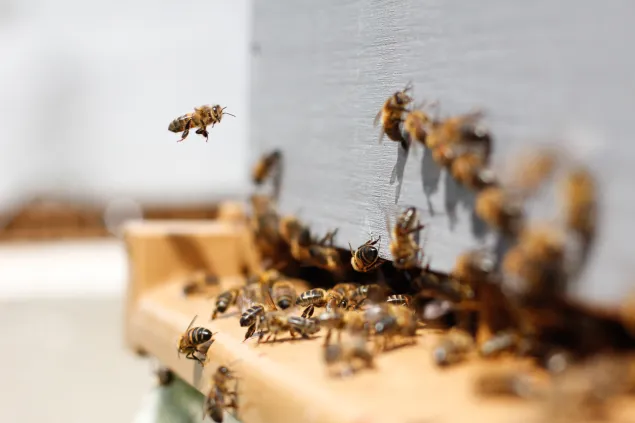
For communities living in mountainous regions, beekeeping can be a practical and profitable solution as many traditional dishes in the country require honey, and good-quality, natural honey fetches a high price. "Beekeeping doesn't require much space, grass or water like rearing farm animals usually does. So, we had provided bee kits to help the locals. But last year beekeepers living along the border of Armenia lost most of their bees in the winter because they did not know how to prepare for the season," shares Peykar Ibrahimova, responsible for the bee project.
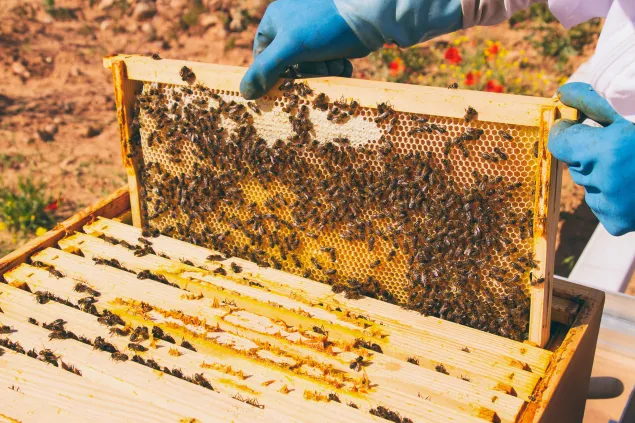
Beekeeper with his bees.
As face-to-face training is not possible right now, the ICRC team in Azerbaijan has collaborated with a professional beekeeper to film a training course on how to clean a beehive, feed the queen bee and perform other such daily tasks. The supported communities will also be given tablets to view the course and will be able to consult a trainer through a hotline number.
"We have also provided honey separators to three communities in Gazakh and Gadabay districts to share among themselves. Since selling honey has become difficult because of the current situation, we are working with a food delivery company in Baku to find an appropriate solution," added Peykar.
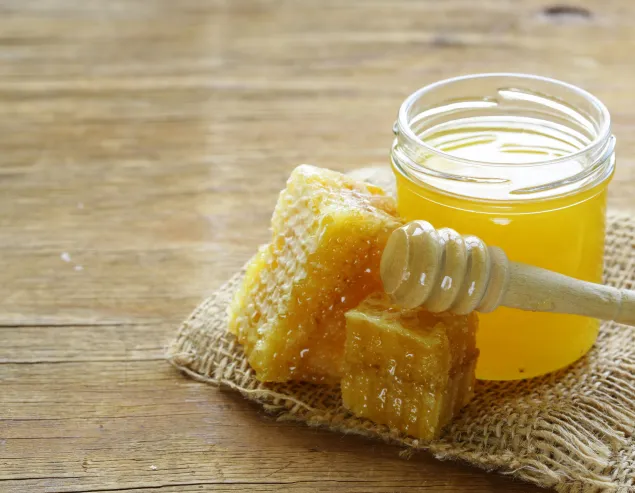
Farmers of Yukhari Aghjakend community in Goranboy district have also been facing challenges in selling their produce of butter and cheese. "Normally, they would take their products to the central market that is a 45-minute drive away. But with COVID-19 travel restrictions, it has become impossible to go about business as usual," shares Alihuseyn Shukurov from the ICRC.
To bridge the gap, the ICRC has hired a person from the community to buy cheese from local farmers and deliver it to the market. "As a trial run, three households sold 46 kg cheese. Now more farmers want to join the programme," says Alihuseyn.
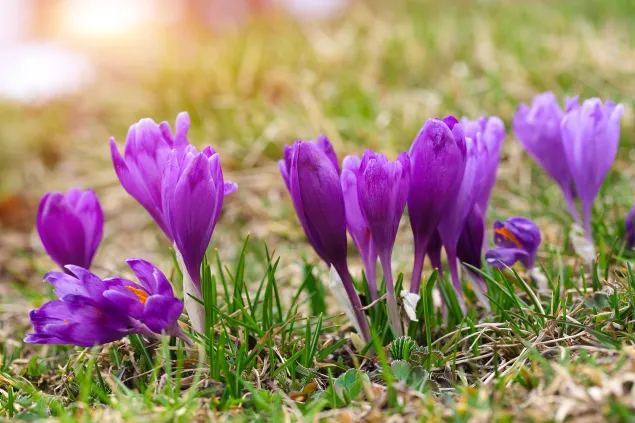
Crocus flowers awakening in spring.
Meanwhile, saffron crocuses have been adding a sprinkle of colour and flavour to the lives of families in Fuzuli, Terter, Goranboy and Gazakh districts. Though a valuable spice, saffron does not require much water or space and can be grown in the backyard. "That's why it is a sustainable and safe solution for conflict-affected areas. Our team distributed saffron crocus bulbs to farmers in the four districts. After the first harvest, we sent their produce for testing to a laboratory in Germany which validated it with a high-quality certificate," shares Almas Hasanova who oversees Saffron projects.
Excited about the project's success, even the ICRC staff members at the Azerbaijan delegation bought some products and gave them away as New Year gifts.

